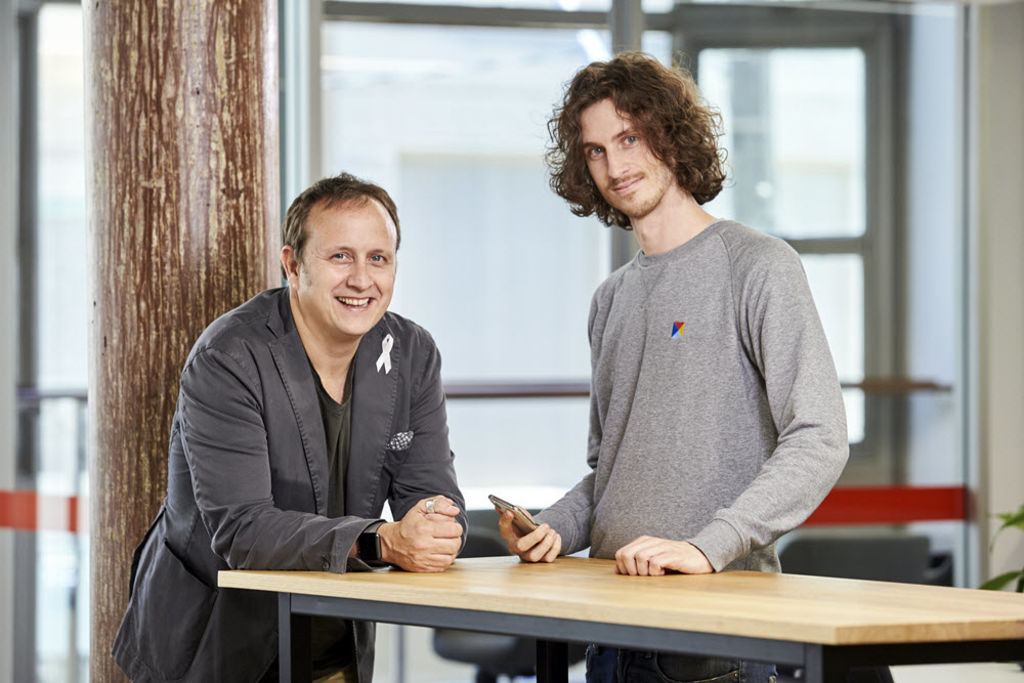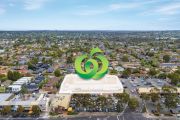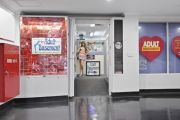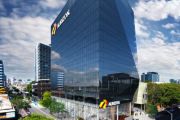
Workwell office app breeds connection and camaraderie at work
When Australia was set to play France in this year’s Football World Cup, an Aussie working in Paris used his office building’s mobile app to send out an SOS for a compatriot with whom he could watch the game.
A fellow countryman replied, and the pair were then able to get together to see the match – and comfort each other as Australia went down 2-1 to the eventual Cup winners.
It might not sound like a game-changer for office productivity, but it was an important step, said the Workwell app’s co-founder Paul Dupuy over the phone from Paris.
“It’s all about creating community in companies and when people feel happier in the workplace, and feel like they know each other, then they work better too,” he said.
“It’s important to introduce ways for people to communicate within their companies and their buildings. We’re seeing dramatic changes in workplaces which is often driven by millennials who are looking for a strong culture, a welcoming place to work, and a real community.”
It’s for these kind of reasons that developer Mirvac is now introducing the Workwell app into its Australian buildings. The app centralises a variety of services onto one platform, so employees don’t have to scroll through a range of single-use apps every time they want a service, such as booking meeting rooms, using car parking, organising phone conferences, ordering food or even finding like-minded company for watching sports matches.
Mirvac has earmarked two of its landmark commercial towers, the EY Centre at 200 George Street in Sydney and 367 Collins Street in Melbourne, to be the first to receive the app in early 2019. Its Calibre Industrial Estate in Western Sydney will follow, before it’s rolled out across the rest of its portfolio.
“We see the future of work being as much about the experiences you have, as just coming to work,” said Mirvac’s general manager of workplace experiences Paul Edwards. “We believe that providing people with services and opportunities to engage with the community in the building will improve both their wellbeing and their productivity.
“It will also help companies to retain and attract talent as so many of their employees are now millennials who have grown up with technology and expect good technology in the workplace; cool and funky places to work.”
The Workwell app is already being used in more than 10 countries and more than 100 large corporations worldwide, including major banks, Unibail-Rodamco-Westfield, AXA, American Express and BNP Paribas. This, however, is its introduction into the Australian market.
The concept of community creation in buildings is growing more important around the world, believes workplace culture leadership consultant Linley Watson, managing director of Peak Performance International.
“If people in the workplace know, like and trust each other, it brings a sense of real inclusion,” she said. “That builds a strong culture and with employees understanding how things work, having links with each other and sharing a common purpose, they have the confidence to bring their whole self to the work environment and are able to use their strengths to their full capacity.”
With such apps helping people to operate more effectively, and confidently, in the office, it then becomes a win-win.
“That can really boost productivity,” Ms Watson said. “If someone is happy at work, and feels connected to the people they work with, then they’ll do a better job, work as a team and as a strong community.
“If they’re unhappy and feel isolated, then you’ll see undermining going on or excuses not to be productive which can lead to a toxic culture of blame and information-withholding.”
Mr Edwards said that Mirvac examined the products of 17 companies initially but liked the universality of the Workwell app in that it could be used to bring together their 40 existing apps to fulfil a whole range of functions. These can range from giving entry into security buildings to ordering coffee, with customers able to introduce their own functions to suit themselves.
“For instance, someone might want to set up a jogging club and will be able to contact like-minded individuals, or find out who shares hobbies like painting or photography,” Mr Edwards said.
“There can be bulletin boards or office chat rooms or messages about eating healthily or yoga classes or food and retail offerings.”
The app had its beginnings in the US when office worker Marie Schneegans was looking for someone to eat lunch with. Her invention proved so popular that she further developed the software with Mr Dupuy into Workwell, with the pair setting up headquarters in New York and Paris, and the company now valued at $US35 million ($48.5 million).












